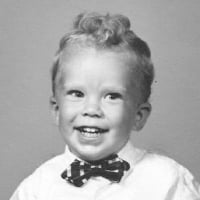What is a "family history experience"?
Section 5.4.4 of Handbook 2, which describes duties of the TFH consultants, includes "Provide family history experiences, especially for those learning the gospel, new and returning members, and children and youth . . ." How is this different from working with individuals one-on-one or teaching FH classes? Does anyone have an example of a "family history experience" they've provided?
Respuestas
-
I think any experience that has anything to do with Family History is a family history experience. Locating a record or pictures, making living memories, connecting with relatives, teaching them how to use FamilySearch and the apps on the mobile phone, teaching them how to interview relatives and how to record their voices etc etc.
0 -
The calling description for consultants found at familysearch.org/calling may provide more insight.
0 -
It is a 1:1 lesson that is short, spiritual, and simple. It is finding out what their needs/interests are and working with them to have a positive family history experience that will motivate them to want to do more family history. This is different for each person you work with!
0 -
BYU FH Library has a webinar from earlier this year, How to Prepare a Successful Discovery Experience (w/Demo). The presenter shows how she works with someone to determine a goal, prepare an experience for the goal, and then deliver the experience to the person. In this example the goal is to find and add people to the tree. https://fh.lib.byu.edu/2019/03/18/how-to-prepare-for-a-successful-discovery-experience-w-demo-kathryn-grant-13-mar-2019-65-min/
Other goals I've worked with people on: an adopted person wanted to know how to start looking for bio parents (the Wiki, naturally); a person with a well developed tree wanted to work on cleaning up errors (she knew of a mother mis-married to a son, we found a disappeared grandfather who had been mis-merged); another adopted person had learned the identity of her deceased bio father and wanted to know more about his life; a person frustrated by entire lines in his deep tree disappearing was grateful to learn that he could trace and restore the breaks using the Recent Changes logs.
0 -
Doing a family activity (found in top right hand corner on home page), or even doing a selfie and adding it to their person page. We have groups coming to the library as well as individuals do some of these activities first and have found that they really help them to be engaged in family history. They are well worth doing!
0 -
In one sense, you won't be delivering anything to them, meaning you won't go do some research for them and show them the results. Instead, what you'll deliver to them is their own experience of finding or creating something that is meaningful to them - an experience that creates in them a feeling of connection to their family. That could be almost anything, with some excellent ideas and examples in the previous answers. Be certain to start each session with an individual or family with a prayer, seeking guidance, and thanking Heavenly Father for family, both known, and not yet known. That's the single most important step and ingredient in each encounter. Then encourage them to pray before each period of time they spend on family history searching. You can then confidently promise them that if they follow that step, they will have experiences come to them from time to time, and perhaps even like a fire hose on high volume at times, that will more than compensate for the seeming dead ends and empty sessions of research with no results.
Chris
0 -
Check out Sister Stansfield’s 2019 RootsTech presentation to consultants. She does an excellent job of defining a discovery experience.
0


